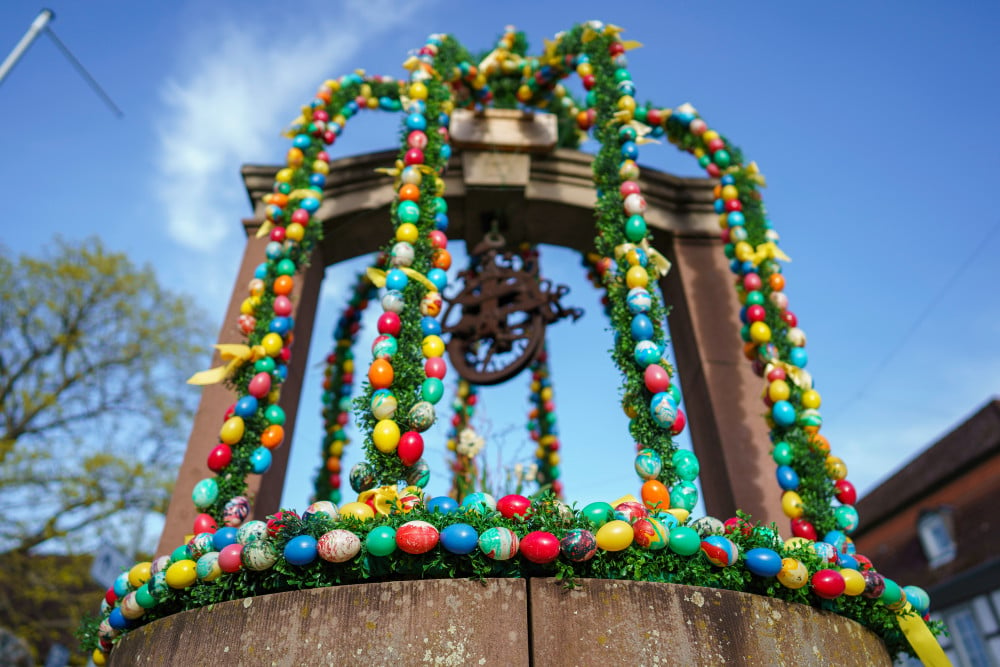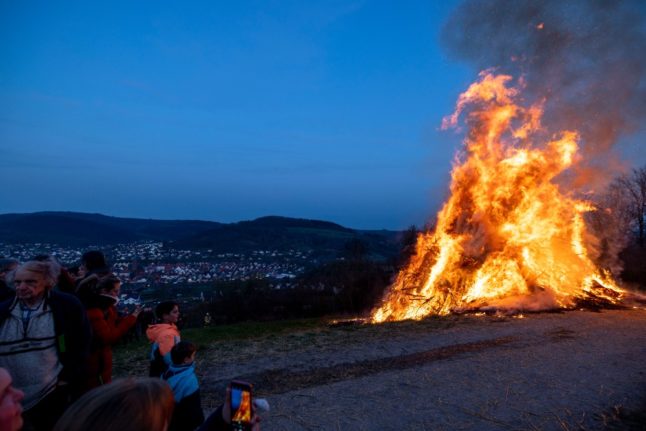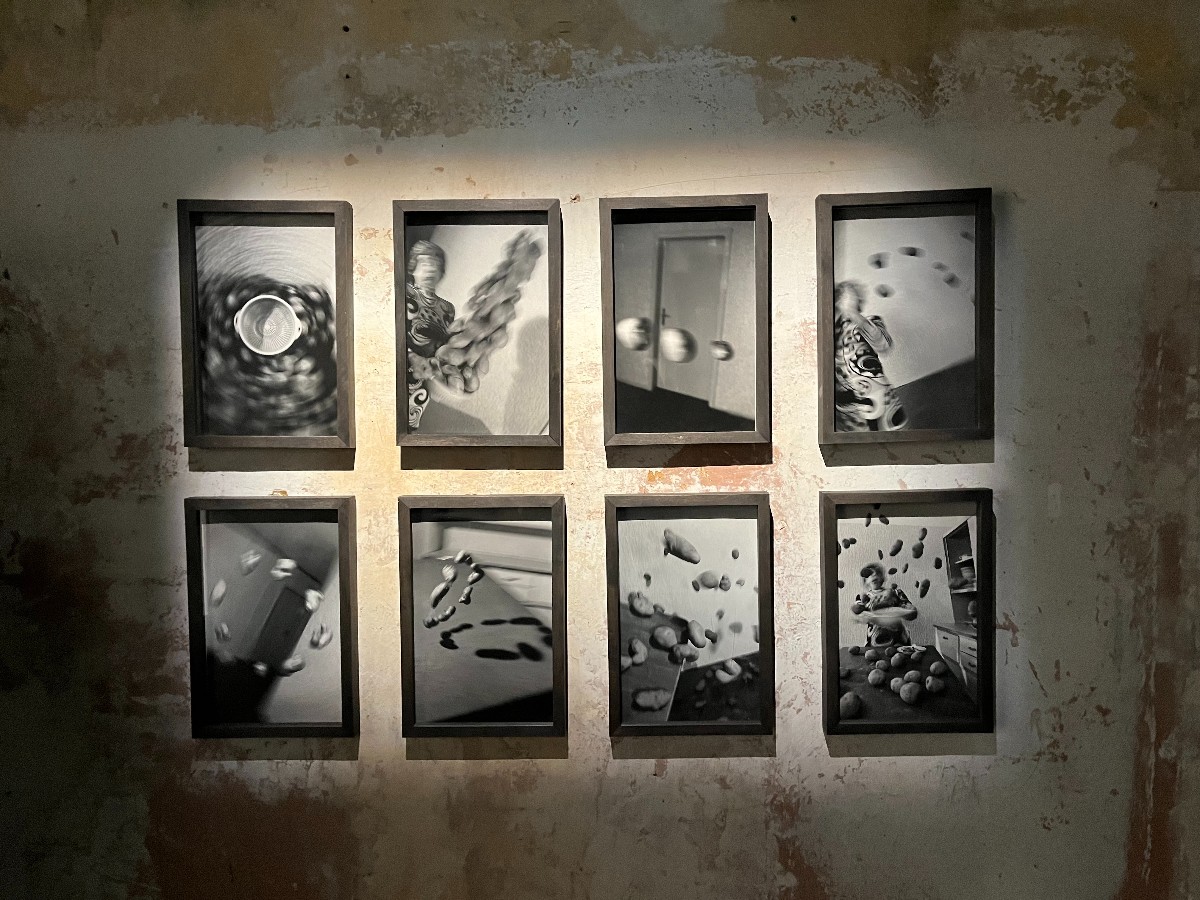Living in Germany is our weekly look at some of the news and talking points in Germany that you might not have heard about. Members can receive it directly to their inbox on Saturday.
The end of (some) long-running transport strikes
With a number of public holidays around the corner in Germany, lots of people are excited to take time off and head on holiday. But one thing residents have had no control over is the endless strikes, particularly the ones hitting essential services like public transport. Ahead of Easter, many of us feared that they would have to contend with industrial action, possibly facing a cancelled train journey or flight. But, luckily for us, the week started off positively.
The German Train Drivers’ Union (GDL) and Deutsche Bahn reached an agreement in their long-running dispute on wages and working conditions. It’s a significant win for the union – Deutsche Bahn has agreed to give union members a 35-hour week with no pay cut in an optional model that will be introduced gradually from 2027. Drivers who want to work up to 40 hours per work can do that under the agreed model and will get a pay rise for every hour over 35 hours that they work.
Another deal was struck by airline Lufthansa and the Verdi union representing ground staff at German airports – averting some of the strikes that have been affecting airports. Workers reportedly got hefty salary increases, which will no doubt be welcome as Germany has struggled with rising inflation in the last years.
But that doesn’t mean there won’t be any more strikes. There are still some ongoing disputes, such as in various local public transport. Meanwhile, staff at two supermarkets – Lidl and Kaufland – were staging a national strike on Thursday, just before the closure of shops on Good Friday. So what does all this mean? Well, deals being struck is a positive sign and brings an end to industrial action…but they might just take a long time to happen.
Tweet of the week
Spargelzeit (asparagus season) is coming up soon but a Spargelautomat is next level dedication to the vegetable. Do you have an asparagus vending machine near you?
Brace yourselves… the local Spargelautomat is up and running! I’m going to have to find this Automat, and check out what they’re offering!#TeamGreen #SpargelSaisonhasbegun pic.twitter.com/s7k4QsAf1K
— Norwegian Frankfurter (@ScandiTina) March 27, 2024
Germany in Focus podcast
In this week’s episode, we tell you the date to know about the citizenship law, changes to the citizenship test and we welcome special guest Berlin tour guide Jonny Whitlam to talk about being a tour guide in Berlin, Holocaust-era film The Zone of Interest as well as remembrance culture in Germany. Check it out here or wherever you get your podcasts. Please leave a review and a rating or let us know your feedback. You can email the team directly at [email protected].
Where is this?

Photo: picture alliance/dpa | Andreas Arnold
If you notice an Osterbrunnen (Easter fountain) coated with colourful Easter eggs, chances are that you’re in the central state of Hesse. These fountains, such as this one in Rüsselsheim, can be found throughout the whole state. This tradition has been going on since the 1980s and originally stems from French-speaking Switzerland.
Did you know?
You might associate bonfires with a camping trip with your mates, or for American readers: roasting s’mores. But for Germans, they’re a key part of the Easter weekend, and often take place in their own backyards. On the night before Easter Sunday, Germans across the country gather around huge bonfires, sometimes built with the wood of old Christmas trees.
Depending on the region, you might notice these bonfires are planned for different days of the Holy Week leading up to Ostern. The fire marks the end of winter and the coming of spring – and some say it also drives away the evil winter spirits. The tradition is said to stem from the ancient Egyptians, who lit the fires to drive away the dreary cold months and welcome the sun. The practice then spread to what became northern Germany, and Christians adopted it into their liturgical Easter services.
This year it’s particularly well timed, seeing that Sunday morning marks another practice to welcome the start of spring: Daylight Savings Time. People in Germany will lose an hour of sleep as they set their clocks forward at 3am on March 31st – but in turn they can look forward to increasingly longer and lighter days going forward.




 Please whitelist us to continue reading.
Please whitelist us to continue reading.
Member comments